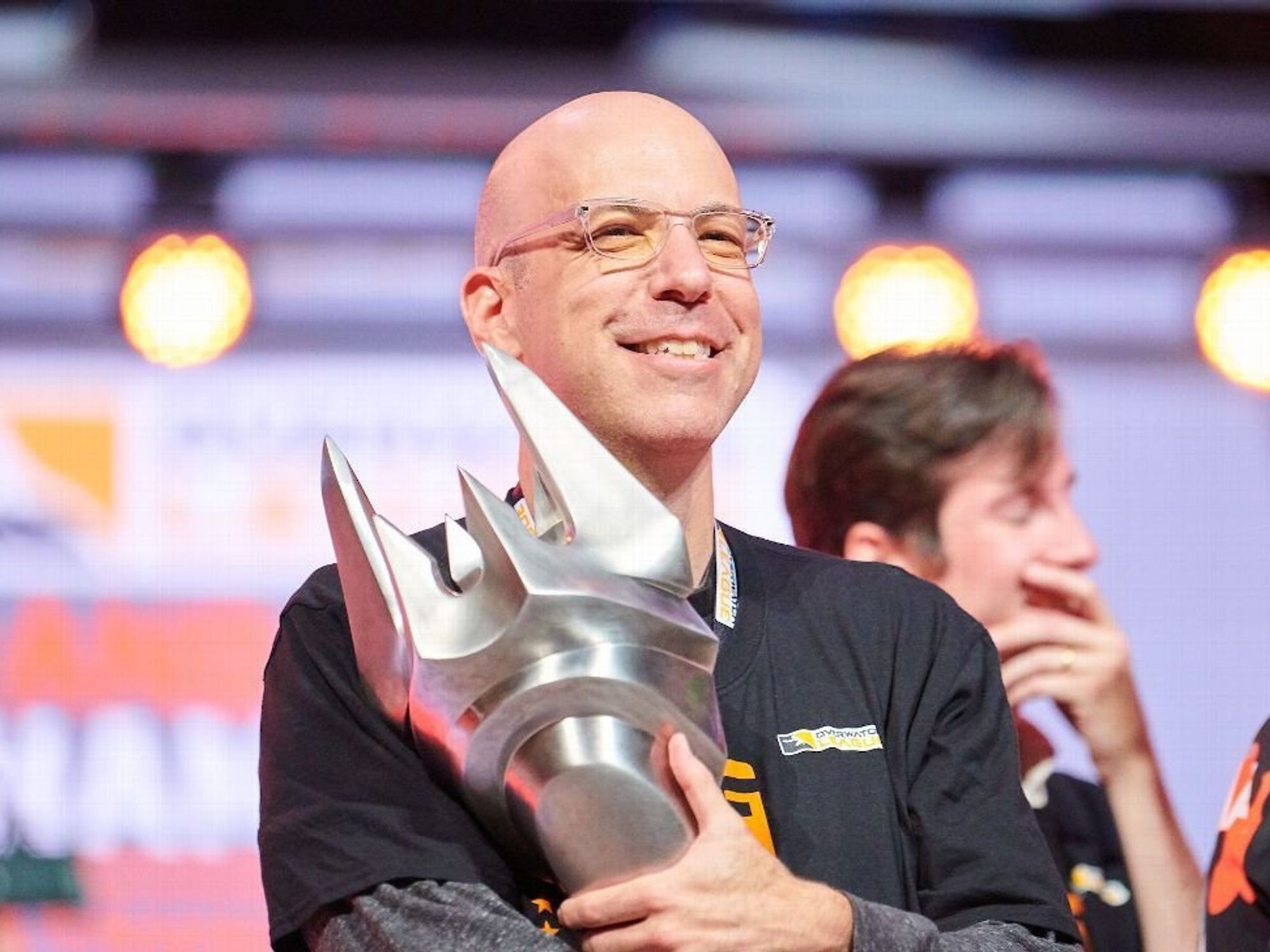Why LA-Based Esports Outfit NRG is Partnering With Madison Square Garden
Samson Amore is a reporter for dot.LA. He holds a degree in journalism from Emerson College. Send tips or pitches to samsonamore@dot.la and find him on Twitter @Samsonamore.

After a nearly-unprecedented boom during the pandemic, esports is weathering a downturn.
FaZe Clan, the Los Angeles-based gaming and hype squad once thought to be an industry leader, has been warned of a stock delisting and could be facing bankruptcy. 100 Thieves, an esports organization based in Culver City, laid off 30 people in January. And Playa Vista-based esports team owner Team SoloMid (which recently terminated a $210 million, decade-long naming rights deal with now-defunct exchange FTX) announced this month it’d pause competition in several esports, despite claiming it’s profitable.
The main problem that esports organizations face is that, even if they have millions of fans worldwide, it’s difficult to translate that interest into tangible cash. It takes a hefty chunk of change to launch an esports outfit, and taking on debt without a stable revenue stream as some local companies have done, is a dangerous tightrope to walk.
But NRG, a Los Angeles-based esports team owner founded in 2016 by basketball legend Shaquille O’Neal and CEO Andy Miller, aims to turn that tide and hopes a deal with a legacy sports name will help. NRG recently announced it would buy some assets of CounterLogic Gaming, an esports outfit previously owned by Madison Square Garden Sports Corp.
The newly-combined outfit will be led by NRG, which also competes in several esports including “Apex Legends,” “Rocket League” and Activision Blizzard’s “Overwatch.”
The real reason NRG bought CounterLogic was for its spot in Riot Games’ “League of Legends” Championship Series tournament, Miller told dot.LA. NRG’s team already played in another popular Riot esport, “Valorant,” but was eager to snatch up another team because Riot’s content is hot right now, and that gives NRG a chance to stand out and gain new fans.
Miller said esports has “incredible engagement,” that is “rarely seen” in professional sports, especially among younger fans. He noted that NRG’s business model consists of both playing pro esports but also creating content – and said that its gaming lifestyle content garnered around 2 billion global views last year.
“[When] we had the opportunity to do that for League of Legends, we jumped at it because League’s gotten somewhat antiseptic… the teams are kind of similar, and there’s a lot of legacy brands and we wanted to bring in something new and fresh, and bring in some new fans who’ve never even opened a game up before.”
Miller clarified that NRG now owns “everything associated with ‘League of Legends’” under CLG that Madison Square Garden Sports once owned, including their team coaches, analysts, academy team, scouts and facility in Culver City. “It will be part of the NRG brand,” Miller said.
When asked about the current tumult in the esports industry, Miller said, “It's a tough space because it's a new space.” That said, at seven years old NRG has mostly aged out of startup status. Still, Miller noted, “There's no shortage of people who are interested in our content. It just keeps growing [and] it's evergreen; If you started playing games when you were eight, you're still watching and playing games when you’re 25.”
So the thesis that there’s a strong audience ready to be mined for their spending power and views “is holding,” Miller said. “What hasn't held is what's the revenue model, a lot of the investment dollars came in, because they thought it was going to be like traditional sports, and it's not.”
Miller did acknowledge that overall it’s a “tough economic time and [there’s] lower CPMs and a cutback in marketing dollars… esports boards have had a tough time.” He also noted that “Then you can throw some gasoline on the fire with the ill-fated FaZe IPO, which was a really bad idea from the beginning, and I don’t think there was one person knowledgeable about the gaming space or about FaZe that thought that was going to work.”
In addition to its focus on winning esports championships, Miller said NRG’s eager to continue growing its content side of the business, Full Squad Gaming. It’s basically “a casual gaming brand that’s like Barstool [Sports] for gamers,” Miller said. He characterized the brand he and O’Neal have built as having the image of being “the world’s biggest kid.”
While NRG isn’t profitable, Miller said he’s still seen interest from sponsors and advertisers eager to tap into its social gaming community and reach its core audience – men aged 15 to 35. Since 2016, NRG has raised $40 million, Miller confirmed.
MSG Sports couldn’t immediately be reached for comment. President and chief operating officer David Hopkinson said in a statement, “NRG is a leading professional gaming and entertainment company with championship teams and innovative content. This transaction has brought together premier esports teams with a track record of success and allows MSG Sports to remain a significant investor in the esports industry.”
- Gaming Content Creation Group FaZe Clan to Go Public With $1 Billion Valuation ›
- Esports One's Gaming Fantasy ›
- FaZe Clan is Finally Embracing Women’s Esports Over a Decade After its Founding ›
- Glytch Wants to Build 32 Esports Arenas Across the Country. The Industry is Skeptical. ›
Samson Amore is a reporter for dot.LA. He holds a degree in journalism from Emerson College. Send tips or pitches to samsonamore@dot.la and find him on Twitter @Samsonamore.





 Image Source: Skyryse
Image Source: Skyryse